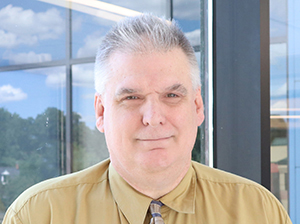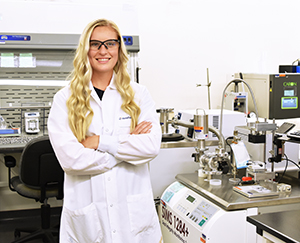Tuesday, December 5, 2023 | 11am EST | 8am PST | 5pm CET
Event Overview
Pharmaceutical products and medical devices are expected to be free from microbial contamination and safe to use from production through the end of their shelf-life. A container closure system needs to be able to contain the product without leaks while also providing a barrier to keep harmful materials from reaching the drug product. Due to the variety of product/packaging configurations and regulations, there is no one method of container closure integrity testing (CCIT) that can test all products. Per USP <1207> there are multiple techniques that can be used for CCIT; and determining the best method for a product requires understanding of the product being tested and the technique being employed.
- understand the basic CCIT regulations.
- examine the different deterministic techniques available, along with advantages and disadvantages of each.
- review how a newer technique, Carbon Dioxide Headspace testing, can be utilized as a tool in CCIT, along with the more established methods.
Presenters:
 |
Leonard Harris Manager – Chemistry and Container Testing Eurofins BioPharma Product Testing |
|
As Manager of Chemistry and Container Testing at Eurofins Medical Device Testing, Mr. Harris oversees the chemical testing of medical devices. With 25 years of industry experience in pharmaceuticals and medical device chemical testing, and seven years specifically in ethylene oxide residual testing, Mr. Harris is experienced in GMP and ISO test methods and validations, investigations, protocol validations, and data analysis. Mr. Harris holds a B.S. degree in chemistry from Shippensburg University.
|
|
 |
Lyndsy Barry Group Leader I – Chemistry and Container Testing |
|
As a Group Leader of Chemistry and Container Testing at Eurofins Medical Device Testing, Lyndsy oversees the method development and validation of container closure integrity (CCI) test methods. Ms. Barry began her career as an analyst performing the testing that she now works to oversee. With 6 years of industry experience in CCI, Ms. Barry is experienced in a wide range of test methods including dye immersion, high voltage leak detection, pressure decay, vacuum decay, oxygen headspace analysis, carbon dioxide headspace analysis, and helium leak detection. Ms. Barry holds a B.S. degree in biomedical engineering from Messiah College.
|
|
Pharmaceutical products and medical devices are expected to be free from microbial contamination and safe to use from production through the end of their shelf-life. A container closure system needs to be able to contain the product without leaks while also providing a barrier to keep harmful materials from reaching the drug product. Due to the variety of product/packaging configurations and regulations, there is no one method of container closure integrity testing (CCIT) that can test all products. Per USP <1207> there are multiple techniques that can be used for CCIT; and determining the best method for a product requires understanding of the product being tested and the technique being employed.
- understand the basic CCIT regulations.
- examine the different deterministic techniques available, along with advantages and disadvantages of each.
- review how a newer technique, Carbon Dioxide Headspace testing, can be utilized as a tool in CCIT, along with the more established methods.
Presenters:
 |
Leonard Harris Manager – Chemistry and Container Testing Eurofins BioPharma Product Testing |
|
As Manager of Chemistry and Container Testing at Eurofins Medical Device Testing, Mr. Harris oversees the chemical testing of medical devices. With 25 years of industry experience in pharmaceuticals and medical device chemical testing, and seven years specifically in ethylene oxide residual testing, Mr. Harris is experienced in GMP and ISO test methods and validations, investigations, protocol validations, and data analysis. Mr. Harris holds a B.S. degree in chemistry from Shippensburg University.
|
|
 |
Lyndsy Barry Group Leader I – Chemistry and Container Testing |
|
As a Group Leader of Chemistry and Container Testing at Eurofins Medical Device Testing, Lyndsy oversees the method development and validation of container closure integrity (CCI) test methods. Ms. Barry began her career as an analyst performing the testing that she now works to oversee. With 6 years of industry experience in CCI, Ms. Barry is experienced in a wide range of test methods including dye immersion, high voltage leak detection, pressure decay, vacuum decay, oxygen headspace analysis, carbon dioxide headspace analysis, and helium leak detection. Ms. Barry holds a B.S. degree in biomedical engineering from Messiah College.
|
|